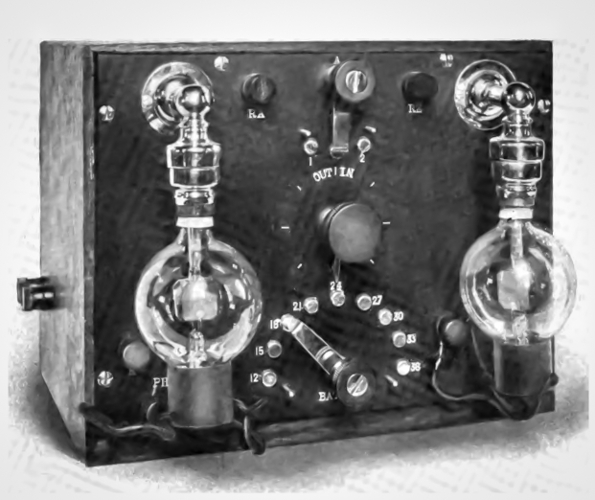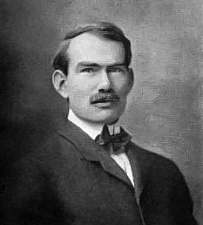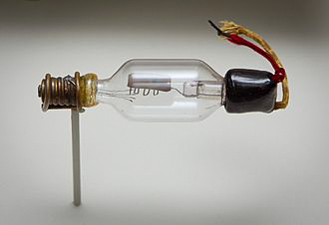| Lee de Forest (August 26, 1873 ➙ June 30, 1961) was an American inventor, self-described "Father of Radio", and a pioneer in the development of sound-on-film recording used for motion pictures. He had over 180 patents, but also a tumultuous career. He boasted that he made, then lost, four fortunes.
He was also involved in several major patent lawsuits, spent a substantial part
His most famous invention, in 1906, was the three-element "Audion" (triode) |

|


- Charter member, in 1912, of the Institute of Radio Engineers (IRE).
- Received the 1922 IRE Medal of Honor, in "recognition for his invention of the three-electrode amplifier and his other contributions to radio."
- Awarded the 1923 Franklin Institute Elliott Cresson Medal for "inventions embodied in the Audion."
- Received the 1946 American Institute of Electrical Engineers Edison Medal, "For the profound technical and social consequences of the grid-controlled vacuum tube which he had introduced."
- Honorary Academy Award Oscar presented by the Academy of Motion Picture Arts and Sciences in 1960, in recognition of "his pioneering inventions which brought sound to the motion picture."
- Honored February 8, 1960 with a star on the Hollywood Walk of Fame.
- DeVry University was originally named the De Forest Training School by its founder Dr. Herman A. DeVry, who was a friend and colleague of DeForest.
![]() Video From the TV show "This is your Life" ➙ 1957
Video From the TV show "This is your Life" ➙ 1957